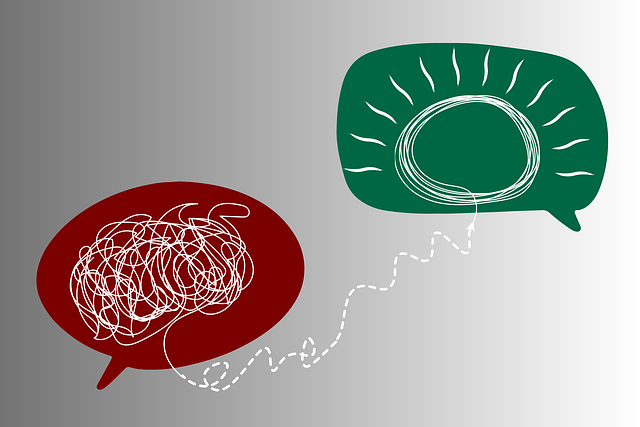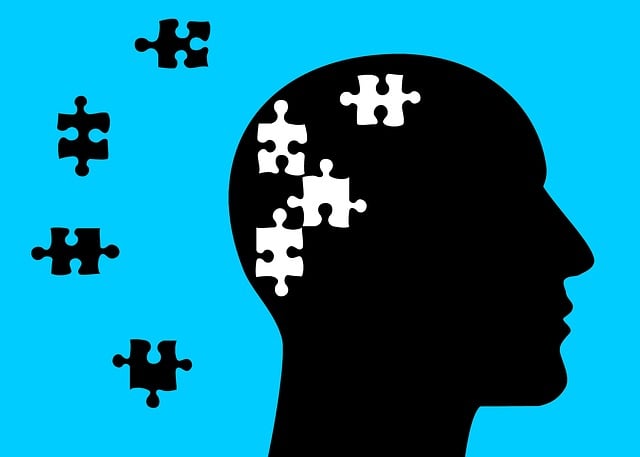Mental health advocacy, exemplified by Wheat Ridge Exposure and Response Prevention Therapy (ERPT), plays a crucial role in reducing stigma, raising awareness, and improving access to care. ERPT combines exposure therapy with coping strategy education, successfully treating anxiety disorders and preventing depression. Community engagement is key, fostering dialogue and early intervention through programs that integrate diverse communication channels. By challenging stereotypes and promoting understanding, these initiatives aim to create inclusive environments where individuals feel supported in seeking help. Success is measured through both qualitative and quantitative data analysis, ensuring tailored programs that build confidence and resilience within the community.
Mental health advocacy initiatives play a pivotal role in creating a more supportive and understanding society. This article explores various aspects of mental wellness support, from the foundational knowledge of advocacy to innovative therapeutic approaches like Wheat Ridge Exposure and Response Prevention Therapy. We delve into community engagement strategies, stigma-busting techniques, and methods for evaluating program impact. By understanding these key components, we can foster effective mental health advocacy that drives positive change.
- Understanding Mental Health Advocacy: The Cornerstone of Support
- Wheat Ridge Exposure and Response Prevention Therapy: A Unique Approach
- The Role of Community Engagement in Mental Health Initiatives
- Overcoming Stigma: Strategies for Effective Advocacy
- Measuring Success: Evaluating the Impact of Mental Health Advocacy Programs
Understanding Mental Health Advocacy: The Cornerstone of Support

Mental Health Advocacy is a powerful force for positive change, serving as the cornerstone of support for individuals navigating complex emotional landscapes. It involves raising awareness, challenging stigma, and promoting understanding to ensure everyone receives the care they need. Through advocacy, communities can foster an environment where mental health is prioritized, treated with respect, and openly discussed.
Wheat Ridge Exposure and Response Prevention Therapy (ERPT) is a prime example of an advocacy-driven initiative. ERPT focuses on helping individuals confront and overcome anxiety through gradual exposure to feared situations or objects, coupled with learning effective coping strategies. By empowering people with the tools for emotional healing processes, self-esteem improvement, and even depression prevention, this therapy demonstrates how advocacy can translate into tangible improvements in mental well-being.
Wheat Ridge Exposure and Response Prevention Therapy: A Unique Approach

Wheat Ridge Exposure and Response Prevention Therapy (ERP) offers a unique approach to mental health treatment, focusing on exposure to feared situations or objects and teaching individuals effective responses. This method has proven particularly successful in treating anxiety disorders. By gradually facing fears in a controlled environment, patients learn to manage their reactions and reduce avoidance behaviors. ERP combines cognitive-behavioral therapy techniques with stress reduction methods, empowering individuals to confront and overcome their anxieties.
Incorporating social skills training within ERP can further enhance its benefits, especially for those struggling with social anxiety or phobias. This holistic approach not only addresses the underlying causes of distress but also equips individuals with practical tools to navigate social situations confidently. Moreover, by integrating depression prevention strategies, ERP can be a comprehensive solution for those dealing with co-occurring disorders, aiming to improve overall well-being and quality of life.
The Role of Community Engagement in Mental Health Initiatives

Community engagement plays a pivotal role in successful mental health advocacy initiatives. By fostering connections between individuals, organizations, and policymakers, communities can create a collective understanding of mental health challenges and advocate for effective solutions. One notable example is Wheat Ridge Exposure and Response Prevention Therapy (ERPT), which has achieved significant success through community-driven approaches. This therapy model encourages open dialogue about mental health, reduces stigma, and promotes early intervention—all essential components for comprehensive mental well-being.
In the context of Mental Health Policy Analysis and Advocacy, community engagement facilitates the implementation of Community Outreach Program Implementation strategies. By integrating local perspectives and needs, these programs can be tailored to address specific mental health issues prevalent within the community. Moreover, effective communication channels, including social media platforms, workshops, and support groups, are established using Conflict Resolution Techniques to ensure diverse voices are heard. Such inclusive practices strengthen the impact of advocacy efforts and contribute to sustainable improvements in mental healthcare accessibility and quality.
Overcoming Stigma: Strategies for Effective Advocacy

Stigma around mental health remains a significant barrier to access and recovery. Effective advocacy strategies are crucial in challenging these stereotypes and fostering understanding. One proven method is through education and direct engagement, such as Wheat Ridge Exposure and Response Prevention Therapy (ERP) offers. By combining therapy with community outreach programs, individuals with mental illness can share their experiences, breaking down the “othering” often associated with mental health struggles.
Implementing community outreach initiatives allows for the development of coping skills and enhances mental health awareness on a larger scale. These programs encourage open dialogue, dispel myths, and promote empathy, ultimately reducing stigma. Mental health advocacy is not just about raising awareness; it’s about creating environments where individuals feel supported and empowered to seek help without fear of judgment.
Measuring Success: Evaluating the Impact of Mental Health Advocacy Programs

Measuring success is a vital aspect of evaluating the impact and effectiveness of mental health advocacy programs. It involves assessing both qualitative and quantitative data to understand the change brought about by initiatives like Wheat Ridge Exposure and Response Prevention Therapy (ERP). By tracking key performance indicators, organizations can gauge improvements in symptoms, functioning, and overall well-being. For instance, a reduction in anxiety levels, improved coping mechanisms, or enhanced social interactions among participants can serve as strong indicators of successful advocacy.
Additionally, the organization of Stress Management Workshops and Mental Wellness Journaling Exercise Guidance programs can be assessed through participant feedback surveys and follow-up interviews. This qualitative data provides valuable insights into individuals’ experiences, helping to refine advocacy strategies. Measuring success in mental health initiatives is not just about numbers but also ensuring that programs are tailored to meet the unique needs of those they serve, fostering a more confident and resilient community.
Mental health advocacy initiatives, such as Wheat Ridge Exposure and Response Prevention Therapy, play a pivotal role in fostering community support and improving access to care. By engaging communities, overcoming stigma, and measuring success through evaluation, these programs can create lasting positive impacts. The integrated approach, highlighted by unique therapeutic methods like those practiced at Wheat Ridge, ensures comprehensive mental health support, ultimately enhancing the well-being of individuals and communities alike.













